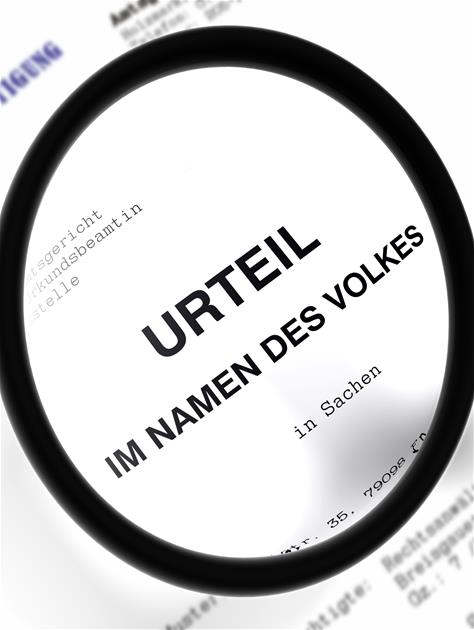Judgment analysis
© Stefan Yang / stock.adobe.com
–
–
Note from
Lawyer Stefano Buck, specialist lawyer for insolvency law, Schultze & Braun Rechtsanwaltsgesellschaft für Insolvenzverwaltung mbH
From beck-fachdienst Insolvency Law 02/2021 of January 21, 2021
This discussion of the judgment is part of the biweekly specialist service for tenancy and residential property law. In addition to further detailed discussions of the decisive current rulings in tenancy and residential property law, it contains supplementary overviews of key principles and an overview of the relevant newly published articles. In addition, it informs you in a message block about the important developments in legislation and practice. Further information and a quick order option can be found at www.beck-online.de
facts
On March 20, 2003, the defendant had a compulsory security mortgage registered on a property owned by the plaintiff by way of compulsory administrative proceedings due to open trade tax claims in the amount of EUR 50,123. With a resolution dated June 13, 2010, insolvency proceedings were opened against the plaintiff’s assets. On June 10, 2016, the plaintiff was granted discharge of the remaining debt. The plaintiff is now demanding that the defendant grant a cancellation permit with regard to the compulsory security mortgage, because the claim secured by it is no longer enforceable in the long term. The lawsuit was unsuccessful in the lower courts. With his revision approved by the appellate court, the plaintiff pursued his application for a cancellation permit.
decision
The revision remains unsuccessful as a result.
The basis of the plaintiff’s request is § 1169 BGB. According to this provision, the property owner can demand from the mortgagee to waive the mortgage if he is entitled to an objection which permanently precludes the assertion of the mortgage. Instead of a waiver according to § 1168 BGB, through which the mortgage is transferred to the owner, the owner can choose to approve the cancellation of the mortgage in accordance with § 875 I BGB, because the mortgagee is not burdened by this additionally (RGZ 91, 218). With the legal force of an admitting judgment, the cancellation authorization is deemed to have been granted (§ 894 Sentence 1 ZPO).
The requirements of a claim from § 1169 BGB are not fulfilled, however. The remainder of the debt granted to the plaintiff does not prevent the enforcement of the compulsory mortgage registered before the opening of the insolvency proceedings.
The purpose of the discharge of residual debt is to free the debtor from his liabilities that have been satisfied over his assets in the insolvency proceedings (§§ 1 Sentence 2, 286 InsO). It works against all bankruptcy creditors (§ 301 Abs. 1 Sentence 1 InsO). The discharge of residual debt, as can be seen in particular from § 301 Abs. 3 InsO result, not to the extinction of the claim affected by it. Rather, this becomes an imperfect liability, a natural obligation that can still be fulfilled but cannot be enforced (see BGH WM 2020, 1313). A mortgage that secures an insolvency claim does not go through the granting of the residual debt according to § 1163 Abs. 1 Sentence 2 BGB to the owner. According to § 301 Abs. 2 Sentence 1 InsO, the rights of the insolvency creditors from a right that entitles them to separate satisfaction in insolvency proceedings are not affected by the discharge of the remaining debt. The mortgage entitled to satisfaction from the encumbered property (cf. § 1113 Abs. 1 BGB). In insolvency proceedings they entitle you according to § 49 InsO for separate satisfaction. For a compulsory mortgage, nothing else applies to legally ordered mortgages. It also falls under § 49 InsO (see BGHZ 166, 74).
Practical note
The compulsory mortgage is in accordance with the provisions of the law on compulsory auction and administration, on which § 49 InsO refers, namely a right to a property according to § 10 Abs. 1 Nr. 4 ZGV (cf. e.g. Böttcher, ZVG, 6th edition, § 10 Rn. 49). It is therefore subject to § 301 Abs. 2 Sentence 1 InsO. It remains unaffected by the discharge of the remaining debt. The creditor can enforce it during the insolvency proceedings, after the property has been released by the administrator, after the insolvency proceedings have been lifted and also after the discharge of the remaining debt has been granted. The BGH expressly pointed this out again.
BGH, judgment of 10.10.2020 – IX ZR 24/20 (OLG Koblenz), BeckRS 2020, 36576
–


